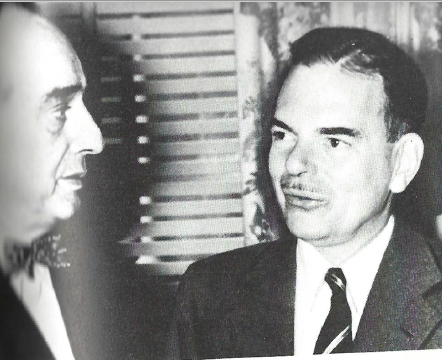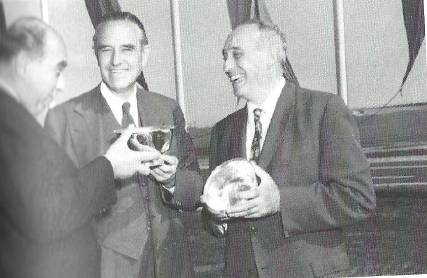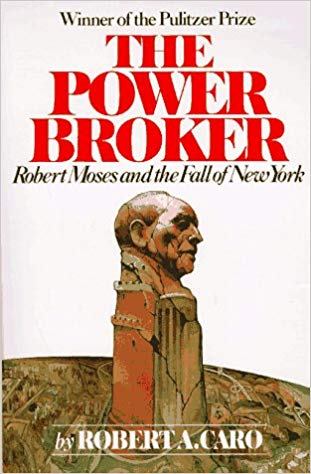Chapter 33 – Leading out the Regiment
After the war, the federal government became more involved in urban development. During the New Deal, most federal funds had been channelled through the city governments. Moses’s new role, as Construction Co-ordinator was seen by many as far too powerful, but O’Dwyer signed it into law. Hidden in the enabling act was a provision for the co-ordinator to negotiate with federal funding bodies, in effect becoming the main broker for the city over desperately needed funds. All roadbuilding in the city was henceforth determined by Moses.
In 1948, Moses was visited by an old Yale classmate, Robert A. Taft, who talked to him about a new concept called “urban renewal”. Moses was already pushing for large projects as head of O’Dwyer’s Slum Clearance Committee and so news that this would attract large amounts of federal funds meant that these plans could be made real.

Moses continued to foster close relationships with the city and state machinery, especially those areas with jurisdiction over his plans. Governors Dewey and Harriman, who ran New York in the post war years, provided little control over Moses, due to the many directorships Moses held and by his control of the city press and his continuing public adulation. Harriman found himself often influenced by expert opinion, many of whom were employed by Moses.

He had also, due to his reorganisation of the civil service years ago, a unique understanding of civil service machinery. Moses offered lucrative consultantships to civil servants to gain favour. Moreover, his control over the Department of Public Works meant he had a veto over all highway projects. When Nelson D. Rockefeller became Governor in 1958, he received a letter from Moses recommending one of his men to the DPW board, continuing his control. Moses would continue to have a stranglehold over the state and federal governments with regards to public works projects.
With the demise of La Guardia, the post war years saw the old Tammany Hall practices begin to take hold. Public office more and more became a means to private profit. Bribery, or the giving of “retainers”, “handling charges” and “fees” in exchange for favours was now back in fashion. Without these, no public work would be forthcoming.
Through his control of housing, roadbuilding and slum clearance, Moses was able to control the sum of three billion dollars in the fifteen post-war years. Most lucrative of all to Moses himself continued to be the Triborough Bridge Authority, which in the fifteen years after the war raised three quarters of a billion pounds independent of state authority.
Moses continued to have a smooth ride from the press. Many attempts to open and audit Triborough’s books was followed by a stern editorial in one of the city’s newspapers, asking why the reputation of the great man should be questioned. Moses carried on spending Triborough funds with complete discretion. The only criteria Moses had to consider when distributing the money at his disposal was how much influence an individual had, and how willing the individual was to use that influence on Moses’s behalf.
Analysis & Key Takeaways
- Moses’ reputation was very clean, the reality was less so: Moses was anti-union, pro-banks. Moses would work with a politician then get some incriminating misdeed on the man that is quantifiable and then leverage the threat of private or public exposure…Moses would have a politician do a favour for Moses. And then there would be a dossier. Moses also had private detectives and turned the dark secrets of men’s past. If you ever went out into the cold because Moses wanted these guys to be killed for life from politics. Moses was powerful and so were the banks and legal work as well. They can give you loans. Make them rich beyond their dreams…


